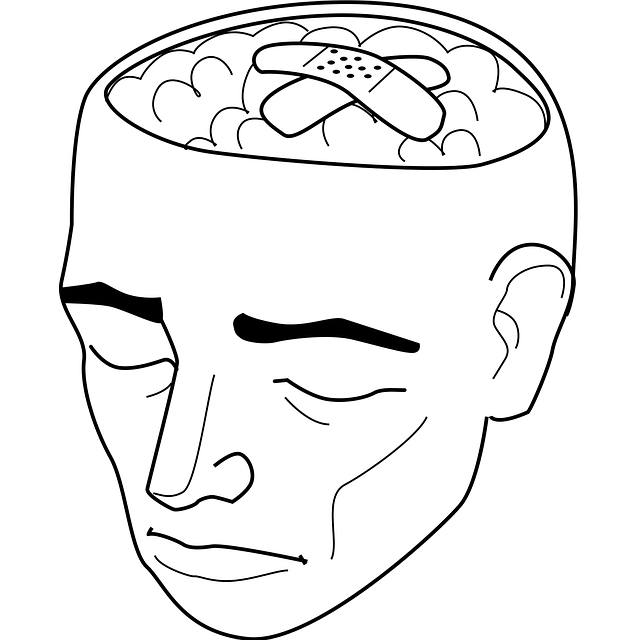Mindfulness meditation emerges as a powerful therapeutic tool for young sexual abuse survivors, offering safe spaces to process emotions, develop coping mechanisms, and enhance emotional regulation skills. The Mental Wellness Podcast Series highlights success stories, promoting mindfulness's potential as a complementary therapy alongside traditional treatments. Integrating mindfulness into tailored coaching programs creates supportive environments, empowering children with valuable coping strategies for overall mental wellness development. Caregivers are reminded that patience is key as progress may be gradual but significant in enhancing survivors' emotional well-being.
Mindfulness meditation is a powerful tool for healing and growth, especially for young survivors of sexual abuse. This article guides parents, educators, and therapists through the process of introducing mindfulness to children, offering strategies to help them navigate traumatic experiences. We explore the science behind mindfulness, its potential to reduce anxiety, and its unique role in therapy for young sexual abuse survivors. Learn practical tips for facilitating safe, effective mindfulness sessions that foster resilience and emotional well-being.
- Understanding Mindfulness Meditation for Children
- The Impact of Sexual Abuse on Young Minds
- Integrating Mindfulness into Healing Processes
- Practical Tips for Facilitating Mindfulness Sessions
Understanding Mindfulness Meditation for Children

Mindfulness meditation has gained significant attention as a therapeutic tool for children, especially those who have experienced trauma like sexual abuse. This practice involves training the mind to focus on the present moment, enhancing awareness and acceptance without judgment. For young survivors of sexual abuse, mindfulness can offer a safe and non-threatening way to process emotions and develop coping mechanisms.
Through guided meditation sessions tailored for children, therapists can help them improve emotional regulation skills, fostering a sense of safety and control. Regular practice has been linked to depression prevention and overall mental wellness. The Mental Wellness Podcast Series Production highlights success stories where mindfulness has empowered children to navigate their experiences and build resilience, demonstrating its potential as a complementary therapy alongside traditional treatments for survivors.
The Impact of Sexual Abuse on Young Minds

Sexual abuse can have profound and lasting effects on young minds, often leading to complex emotional and psychological challenges that require specialized support. When a child experiences sexual abuse, their sense of safety, trust, and self-worth can be severely compromised. This traumatic event may manifest as anxiety, depression, post-traumatic stress disorder (PTSD), or other mental health issues later in life. Young survivors might struggle with feelings of confusion, guilt, and shame, which can significantly impact their ability to form healthy relationships and maintain a positive sense of self.
The journey towards healing for these young individuals is often complex. Therapy plays a pivotal role in helping them process their experiences, develop inner strength, and rebuild trust. Techniques such as mindfulness meditation can be powerful tools in this process. By fostering awareness and presence, mindfulness practices support the development of emotional resilience and encourage healthy coping mechanisms. Moreover, promoting self-compassion and building confidence can contribute to burnout prevention strategies for healthcare providers supporting these survivors, ensuring they receive the best care possible.
Integrating Mindfulness into Healing Processes

Integrating mindfulness into healing processes is a powerful approach for young children who have experienced sexual abuse. Mindfulness meditation can help survivors cultivate present-moment awareness, enabling them to detach from traumatic memories and reduce emotional distress. By focusing on their breath or bodily sensations, these practices allow children to develop a sense of calm and safety, which is crucial for processing complex emotions.
This therapeutic method complements traditional therapy for young sexual abuse survivors, enhancing their ability to regulate emotions and promote mental wellness. Mindfulness meditation techniques can be incorporated into mental wellness coaching programs designed specifically for this demographic, fostering an environment where children feel supported and empowered during their healing journeys. Through these practices, they learn valuable coping strategies that contribute to their overall mental wellness development.
Practical Tips for Facilitating Mindfulness Sessions

Facilitating mindfulness sessions for young children who are sexual abuse survivors requires a delicate and thoughtful approach. Begin by creating a safe and comfortable space where the child feels at ease. Utilise simple, age-appropriate language to explain mindfulness concepts, using metaphors or analogies they can relate to, such as comparing the mind to a sky that can be clear or cloudy. Incorporate sensory elements like soft lighting, soothing music, or gentle touch to enhance relaxation and focus.
Practical tips include tailoring sessions to the child’s needs and preferences. This could involve integrating storytelling, art, or play into mindfulness exercises to make them more engaging. Encourage regular practice by offering guidance on how to incorporate mindfulness into daily routines, like morning breath work or evening journaling. Remind caregivers that consistency is key, and progress may be slow, but with patience and persistence, these practices can significantly contribute to the child’s mental health awareness, emotional regulation, and overall mental wellness.
Mindfulness meditation offers a powerful tool for healing young minds affected by sexual abuse, providing a safe and supportive space for children to process trauma. By integrating mindfulness practices into therapeutic sessions, professionals can enhance the well-being of survivors, empowering them with valuable coping mechanisms for life. These evidence-based techniques, when facilitated correctly, have the potential to transform lives, offering a path towards resilience and emotional balance.














